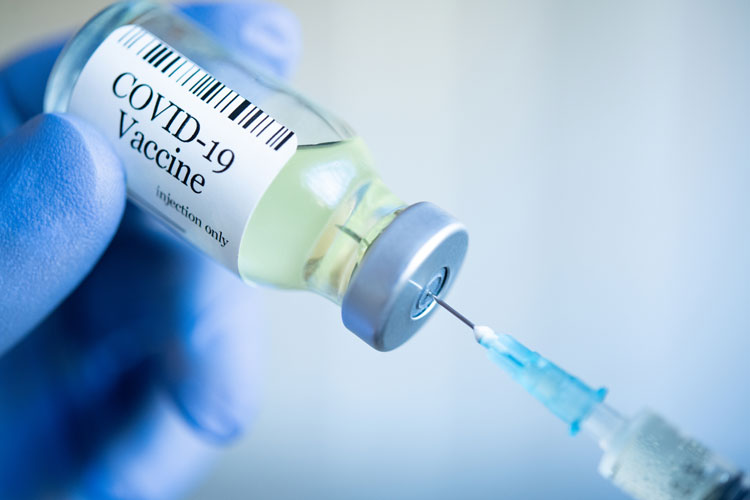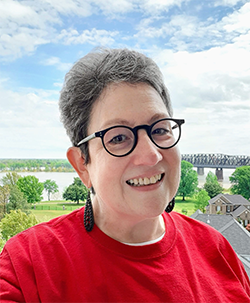
Using vaccines to prevent painful or deadly illnesses in cattle and other livestock is something all farmers are familiar with. We trust the effectiveness of the products, the regulations and testing they go through for approval, and their usefulness in limiting disease on the farm.
Yet, Americans living in rural areas are among the least likely to support the newly approved vaccines for preventing COVID-19 in humans.
Janice Keene of Memphis, Tenn., who grew up on a dairy farm in Maine, hopes her story of participating in the trial for Pfizer’s COVID-19 vaccine will help other Americans, particularly those that have worked with livestock, feel safe to receive the immunization.
Keene’s interest in being part of the trial partially stemmed from her career working with animal health companies that develop livestock vaccines. She witnessed firsthand the stringent processes researchers go through to make sure a product is safe and effective before even submitting it for government approval, which is a lengthy journey in itself.
“I was blessed to work with so many great scientists and veterinarians who really helped explain the process to me and also instilled in me a great trust in good science and how important that was to all animal health products,” she said on a December episode of Farming the Countryside podcast.
Back to normal
That scientific background made her realize early on in the pandemic that a vaccine would be extremely important to curbing the disease. She was dedicated to making that a reality, and she signed up everywhere she could to participate in a trial.
“I just had a feeling and a strong belief that my life would get back to normal much faster if I had access to the vaccines,” Keene said. “I also realize that some people may have been apprehensive about being part of a trial, and I thought that it was just a really important way that I could contribute at this stage of my life and career.”
In August, she received a call from one of the companies recruiting trial volunteers in her area. After reviewing her health history, the doctor determined that she met the parameters of the study and set up an in-person visit for Keene to receive a treatment.
The trial

At her first appointment on August 31, Keene explained that she and a group of volunteers, including some healthcare workers, watched a video from Pfizer explaining the processes of the trial and potential side effects. She met with a nurse to discuss her health history again, go through a physical, and do blood work and a COVID-19 test to make sure she hadn’t already been exposed. The nurse then administered Keene’s injection, which could have been the vaccine or a placebo. In the double-blind experiment, neither the doctor nor the patient knows who receives what.
“The only person who knows, actually still to this point, whether I received the vaccine or the placebo is the nurse who actually administered the injection,” Keene said.
Before she left the doctor’s office, Keene downloaded an app where she reports weekly if she has had any COVID-19 symptoms or exposure. She was also sent home with an at-home COVID-19 test, a thermometer, and instructions on what to do if she was exposed. A bit of soreness in her arm and some aches the following day were her only reactions to the injection.
“I had some aches and pains, but on Day 2, that all started going away,” she said. “It actually reminded me of when I’d gotten a pneumonia vaccine in the past.”
Three weeks later, Keene returned for a follow-up visit to receive her second injection and to describe her reaction to the nurse. Because of her mild symptoms, she believes she received the vaccine and not the placebo.
Keene went back another month later, and blood was drawn to determine her level of COVID-19 antibodies. Her next blood draws are scheduled for March, September, and a year after that, she explained. “It’s an ongoing process. They’ll be tracking me for at least two years through this process,” she said.
Worldwide, about 44,000 people are involved in the Pfizer/BioNTech trial, Keene said. Her understanding is that the company will continue to track the people that received the placebo, too, and let them know to get vaccinated when it is available to them.
Background research
Keene said she saw many similarities between this trial and ones she worked with for livestock vaccines. Research is, of course, the first step, and in the case of COVID-19, scientists all over the world were working fast and collaborating on this stage of the process early in the pandemic.
“Once a company identifies that it wants to try to control this virus, they’re going to do what we call basic research. They’re going to come up with a small group of vaccine candidates that have an antigen — that’s what they put in a vaccine to create the immune reaction — and they’re going to pick what they think will be the best vaccine candidates,” she described.
From there, the company moves into two phases of development. “First, they want to evaluate the safety to make sure it’s going to be safe for the animal or the person that actually receives the vaccine,” Keene said. “Then they determine which dose level of the best candidates are going to create the best outcomes for the future.
“Then they move into Phase 3, and that’s the part of the trial that I have been part of with the Pfizer vaccine. At that point, they’re testing their best candidates, but they’re doing it in a much larger population of people or animals,” she explained. “They’re going to continue to evaluate it for safety because they want to watch and make sure there aren’t any potential adverse reactions that they didn’t see in that smaller population that they had tested before.”
Only then can regulatory review and licensing take place. For animals, this is done by USDA, but with human vaccines, the Food and Drug Administration (FDA) is responsible. FDA will review the trial data presented by the company and also examines the data itself.
Keene continued, “At this time, FDA is also reviewing the manufacturing facilities and processes, wanting to make sure everything about how that vaccine is packaged and ready to go into the arm of someone is okay.”
The drug is still monitored after it is released for use. “A forever part of the process is what they call post-approval monitoring,” Keene said. “The FDA, on an ongoing basis, will always monitor the manufacturing processes and the facilities; they’ll check vaccines to make sure they’re potent, they’re safe, and they’re as pure as they need to be. If there’s ever an adverse event — and this happens with animals as well as human vaccines — something unexplained, some health issue or health condition that crops up, that has to be reported to the FDA. It then investigates to see if this was caused by the vaccine potentially or just something else that happened to occur.”
In the case of the COVID-19 vaccines, more questions will continue to be answered as more trial data comes in. Still, Keene trusts that the emergency use authorization process has done its due diligence. “Having gone through the process as a patient, my level of confidence in our U.S. government regulatory authorities is even higher than it was before. I trust the process implicitly,” she said.
“It took huge commitments from governments, from universities, and from companies individually to make this happen, because normally all these steps we just talked about take place sequentially and they take place over a period of years,” she pointed out.
Since COVID-19 was recognized as such a threat, collecting and analyzing the data was made a top priority, Keene added. The process was also jumpstarted by years of background research developing already approved vaccine-technology “platforms” that allow antigens to be incorporated into vaccines more rapidly.
“It’s so easy to take for granted the medical tools we have available for animals and humans,” Keene concluded. Good science is to thank for these advancements, and that same process is now making the COVID-19 vaccines possible. She encourages everyone to get vaccinated.
“The only way to achieve herd immunity by not getting vaccinated and exposing everyone to the virus is to accept horrendously large death counts and disability counts from the virus,” she said. “The best way to protect the people you love is to get the vaccination yourself.”
UPDATE: Since the recording of the podcast, Keene reports that Pfizer has “unblinded” its U.S. trial participants, and those that received a placebo injection will be vaccinated by the end of February. She received confirmation that she did get the vaccine itself, and she will continue to participate in the trial to help Pfizer and BioNTech better understand how long the vaccine-induced immunity might last.








